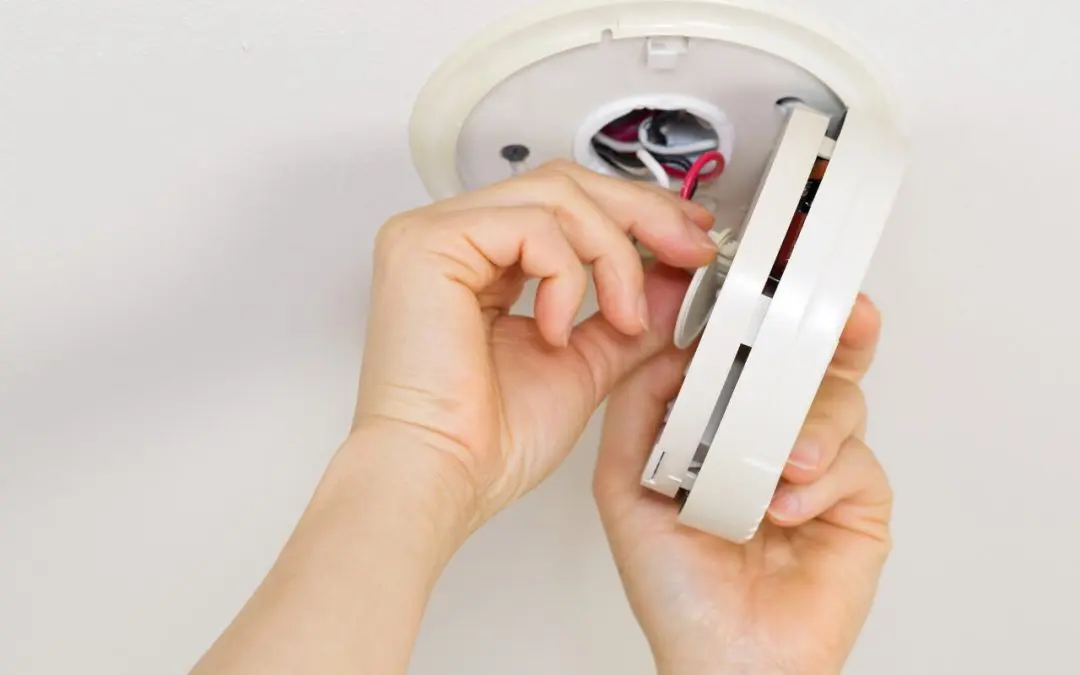Smoke alarms are essential for home safety, providing early warnings of potential fires. However, like any electronic device, they sometimes malfunction. Understanding why your smoke alarm is beeping, chirping, or not working correctly is crucial for maintaining a safe home. Today, we’ll help you with smoke alarm troubleshooting so that your smoke alarms function optimally.
The Alarm Won’t Stop Beeping
A continuously beeping smoke alarm is incredibly frustrating. Typically, this indicates one of several issues. First, check the battery. Even if your smoke alarm is hard-wired, it likely has a backup battery that needs to be replaced periodically. Remove the old battery and replace it with a new one, confirming it’s correctly installed.
If the battery isn’t the problem, the alarm might detect smoke or particles in the air. Smoke alarms can be sensitive to cooking fumes, steam from showers, or dust. Clean the unit by gently vacuuming around the vents and using a damp cloth to wipe away visible dust or debris. Avoid using cleaning chemicals as they can damage the sensor.
Smoke Alarm Troubleshooting: The Alarm is Chirping Intermittently
Intermittent chirping is often a sign of a low battery. Even if you’ve recently changed the battery, it’s worth trying another new one, as batteries can sometimes be faulty. The battery compartment should be fully closed, and the batteries should have good contact with the terminals.
If the chirping persists, it might be due to environmental factors. Temperature and humidity changes may be affecting the alarm. Confirm that the alarm is installed in a stable environment away from direct drafts, extreme temperatures, and high humidity.
The Alarm Doesn’t Sound During Testing
Testing your smoke alarm regularly is vital. If it doesn’t sound when you press the test button, several issues could be at play. Start by checking the power source. For battery-operated alarms, replace the battery. For hard-wired alarms, verify that the unit has power. Check that the circuit is not tripped.
If the alarm still doesn’t sound, inspect the device for signs of damage or corrosion, particularly around the battery contacts and wiring. Corrosion impedes the connection and prevents the alarm from working correctly. Cleaning the contacts with white vinegar on a cotton swab can help.
Smoke Alarm Troubleshooting: False Alarms
False alarms are common and caused by various factors. Cooking fumes, steam, dust, and insects can trigger false alarms. To mitigate this, relocate the alarm if it’s too close to kitchens or bathrooms. Regular cleaning helps prevent dust and insects from triggering the alarm.
Another consideration is the age of the smoke alarm. Most smoke alarms have a lifespan of about ten years. If your alarm is older, it might be more prone to false alarms and less reliable. In this case, replacement is the best course of action.
Maintaining your smoke alarms is crucial for your home’s safety. If your smoke alarm continues to malfunction despite troubleshooting, it may be time to replace it or consult a professional. Remember, a properly functioning smoke alarm can be a lifesaver, providing you with the precious time needed to evacuate safely in case of a fire. Stay vigilant, and your home will be much safer for it.
Buyer’s Edge offers home inspection services in Western North Carolina. Contact us to request an appointment.

